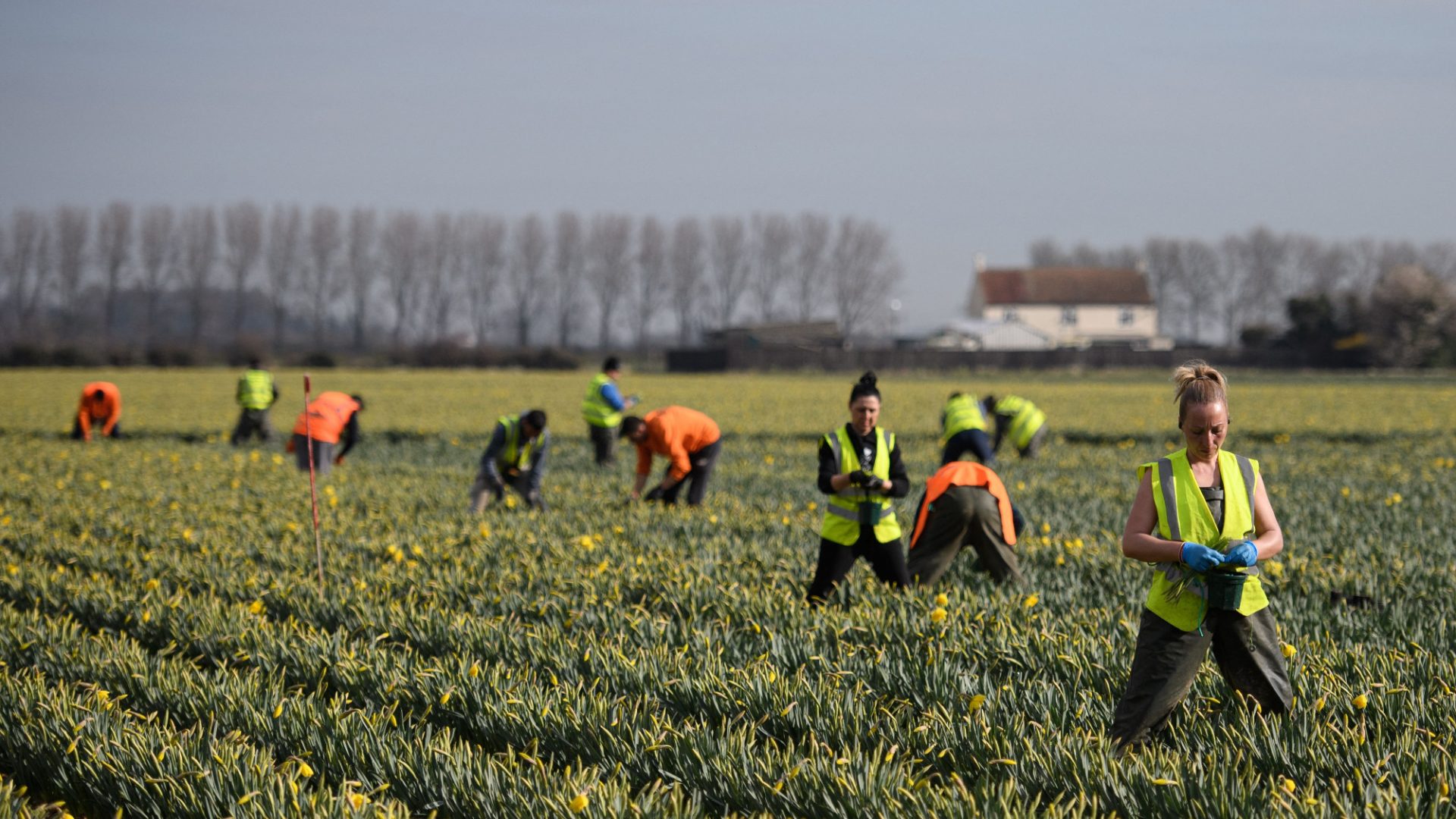Trust is down. Trust is falling. We’re in a crisis of trust. Have you seen a headline recently that says trust is going up? Of course not: bruised ennui is the story of the 2020s. Yet in some respects the trust is dead narrative is deeply odd.
Three years ago, most Britons had themselves injected with multiple doses of a new vaccine. The majority were willing to obey hastily drafted laws that placed strict restrictions on their freedom. Physically cut off from friends and family, they shared extraordinary amounts of personal data with corporations so that they could continue to stay in touch with each other.
If that sounds uncomfortably like a Laurence Fox jeremiad, it’s because the trust most of us put in the state (and business – though you hear less about that) during the pandemic era really was unprecedented. Indeed, some on the left, rightly mistrustful of Boris Johnson, felt the restrictions did not go far enough, and imposed stricter rules on themselves. We did these things because, during a crisis, the urge for the state to protect us from harm throws norms and conventions out of the window.
Not everyone is susceptible to this impulse. On the noisy libertarian right, and on a little-heard part of the left, there were doubts. That lockdowns benefited the better-off, who called on the poorest to supply their daily needs; that the long-term impact of closing schools would fall disproportionately on the disadvantaged; that the people who made the rules might not keep to them. All these things were true. But for most, the desire for the state to do its utmost to protect people from the virus was, and is, unchallenged. Our readiness to trust the government in a crisis seems to be intact. So why, then, do we tell pollsters that we trust the government/MPs/the police/Big Tech/the NHS (delete as applicable) less than ever?
The answer lies in the three bold promises made by the Conservatives since they came to power in 2010. All promised that self-reliance could transform Britain for the better.
The first was the promise of austerity. You laugh, but when George Osborne delivered his 2010 budget, the sense that Britain had been pigging out and needed to go on a diet was widely shared in Westminster. “Today we have paid the debts of a failed past,” he told the Commons. “And laid the foundations for a more prosperous future.” This Dry January (and February never came) would create a leaner, hungrier country that was ready to seize new opportunities.
Six years later, Britain was leaner and hungrier, but visibly not seizing the opportunities Osborne had given it. You know the remedy by now: a short, sharp shock that would kick the country out of its complacency and force it “into the world” (copyright the Spectator) to trade on its own terms. Membership of a “superstate” was replaced by healthy independence that would empower Britain to reclaim money from Brussels and make the laws it wanted.
Then came the pandemic. By this time the ruling party had realised that parts of the UK were doing much better than others. Johnson cast himself as the man who, if we would all just pull together, could jab the country faster than any other European nation and take us out of lockdown quicker, too. “Releasing all restrictions” did not, it turned out, mean getting kids back to school, but that could wait if the pubs were open. Better days would come.
Widespread disgust with Johnson created the opportunity for the Truss experiment in a low-tax, low-regulation state. This would be the jolt that Britain needed. If we could only hold our nerve and… Oh.
For a decade the Conservatives had enjoyed a level of public confidence that French presidents can only dream of. Yet now there is revulsion and, among some voters, the feeling that they have been taken for fools. It is an extremely dangerous moment – not so much for the Conservatives, who know they have lost public trust and will almost certainly be wiped out at the next election, but for Labour.
Big, transformative promises are no longer believed. Labour senses this. As the political scientist Chris Butler noted recently, after talking to politicians and advisers about political trust: “Time and again, politicians suggested that trust could be restored by lowering voters’ expectations rather than by delivering more.”
Backtracking on the £28bn for the Green Prosperity Plan is entirely in keeping with this dismal frugality. The party knows that every time it proposes to change anything, a jaded refrain comes back: yes, but where is the money to come from?
Instead, Labour conjures up a country that will be so invigorated by a change of government that it acquires a new sense of purpose. Britain will be “mission-driven”, proud again. Values, not policy, are promised: security, respect. Trust is sought not through a series of spending pledges or by removing structures that hold us back, but through confidence in the ability of the state to protect its citizens.
Labour is right that life in Britain has taken on an atavistic quality. It is increasingly obvious that only personal wealth ensures you can live and die with dignity; that the hoarding of property is the safest way to build that personal wealth and ensure a decent life for you and your descendants; and that things which might reduce the value of your property are therefore an existential threat. Only by rebuilding some degree of confidence in the state would Labour be able to break that cycle.
Big injections of cash are not realistic in the short term. Yet Labour somehow needs to build up confidence in its ability to run a country where basic democratic institutions can do their job. A good and (relatively speaking) inexpensive place to start would be tackling the courts backlog and enforcing existing employment laws properly. The temptation on the left is to pass laws firming up workers’ rights.
But in a country where cuts to inspectorates and the loss of legal aid mean employers sometimes act with impunity, Labour needs to ask itself whether new laws are really the answer – or whether people would rather see existing ones enforced, and criminal cases come to trial in months rather than years. The ex-director of public prosecutions must be aghast at the state of the justice system. He is right, and he’d do well to make it a priority.
Loss of trust in the state is an existential threat to democracy. Dimly and belatedly, even Michael Gove now seems to grasp that.
In The Future of Trust, I look at some of the ways distrust corrodes the fabric of the state, leaving those who can afford it to go private or to flee abroad. Labour understands this perfectly well. But the party risks becoming paralysed by the sheer scale of the task. It shouldn’t be: if a country can persuade itself to waste hundreds of billions on a project as worthless as Brexit, it is more than capable of rebuilding the institutions it trashed on the way.
The plan won’t involve lavish grands projets or shock therapies. That doesn’t matter. The task of Labour’s first term will be to gradually restore public faith in the state. It’s a huge task, and not a thrilling one. But trust is like that: slow, ponderous, vital.
Ros Taylor is the author of The Future of Trust (Melville House) and presenter of the Oh God, What Now?, Jam Tomorrow and Bunker podcasts



